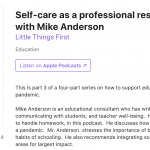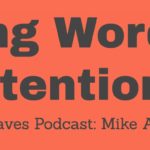Self-Esteem: Can We Hand It to Our Kids on a Silver Platter? (Committee for Children Blogs)
Original article: http://www.cfchildren.org/about-us/blogs/self-esteem-can-we-hand-it-to-our-kids-on-a-silver-platter
Published on Wednesday, February 24, 2016
Happy National Boost-Your-Self-Esteem Month! How are you celebrating? I’ve decided to mark the occasion by exploring where the self-esteem “movement” is today. First, though, some thoughts on self-esteem boosting in my own family.
When Etta, our second-born child, was a baby, I began to realize how differently my husband and I were treating her compared to the way we had behaved with her brother Amos, who is three years older. When Amos first smiled, gurgled, rolled over, and walked, we were in awe of his brilliance. And when he fussed about, say, tummy time, I’m sorry to say we usually rescued him. Believe me, I knew how important it was for him to struggle a bit. How else was he going to learn to do things for himself? But the poor guy was miserable. I couldn’t take it.
Then along came Etta, admittedly a different temperament from the start, but also—let’s face it—a classic second child. We’d find ourselves saying, “Hey, did you know Etta has four teeth now?” or “How long has she been reciting ‘Stopping by Woods on a Snowy Evening’?”. It’s not that we didn’t think she was every bit as magnificent and intelligent and strong as Amos. We were just more used to the fact that babies learn stuff. Mastery is a natural part of their development.
So how does this relate to self-esteem? The National Association for Self-Esteem (Who knew such an organization existed? And that Gloria Steinem was once a member?) describes self-esteem as “the experience of being capable of meeting life’s challenges and being worthy of happiness.” Back in the 1970s, thanks to psychotherapist Nathaniel Branden and others, self-esteem began to be seen as the single most important facet of a person. Boosting self-esteem was thought to boost achievement. The thinking went that individuals with high self-esteem would be happier and healthier, do better in work and school, and have lower rates of crime, obesity, and drug use.
The thing is, they had it turned around. Children—actually, people of all ages—perform better when they receive serious and thoughtful criticism, rather than empty praise. Carol Dweck, Stanford University psychologist, author of Mindset, and pioneering researcher in the field of motivation and success, writes in a Washington Post article, “We used to think we could hand children self-esteem on a platter. That has backfired.”
As Mike Anderson, author, former teacher, and education consultant for Leading Great Learning, says, “High self-esteem does not lead to success; success leads to high self-esteem.” Through his own work and experiences over the years, Anderson has come to a new understanding about how one becomes capable of meeting life’s challenges. “Empty and incessant praise (which has been a main vehicle for trying to boost self-esteem) does not actually lead to higher self-esteem—in fact it can often have the reverse effect. Self-control (and variations of it: persistence, perseverance, executive functioning, etc.) is a much worthier prize to shoot for than self-esteem. Self-control helps lead to success, which actually leads to higher self-esteem!”
Anderson also wants kids to have a well-grounded sense of their own abilities—self-knowledge—and not to think they’re good at things they’re not. “Otherwise, the boost ends up being shallow, vapid.”
Replacement Language
Anderson realized early on in his teaching that his own language was reinforcing his students’ dependence on him and his approval, rather than trusting that they were motivated to do well for their own reasons. The difference is subtle, but powerful. Instead of sentences like this:
- I like the way you’re working so hard on that math challenge!
- Hey, everyone! I loved the way you just walked down the hall so quietly!
- I appreciate how much energy you have for this science project!
Anderson began using sentence starters like these:
- It looks like you’ve been working really hard on this.
- You must be proud of yourself! Congratulations!
- Tell me more about how you came up with this idea in your writing.
- I noticed that we walked respectfully in the hallway as a class. That helped other classes stay focused!
Now, in his consulting work, he helps teachers shift their language when they want to guide or discipline their students. Some teachers are a bit incredulous when he explains that this may also be a better way for them to help boost their students’ self-esteem. “They say, ‘What, we’re not supposed to say good job? Or I like the way you . . . ?’” His answer is an unequivocal (and research-backed) yes. “The mistake many people make is to tell kids how great they are,” he says. “We need to help kids be successful and then celebrate their successes authentically.”
So this month, by all means, work to boost the self-esteem of the children in your life. But remember that it’s impossible to do the work of blending social-emotional and academic learning without using effective language and teaching the real skills they need for success. As for me, I’m going to try harder to remember that Amos, now a teenager, is not only perfectly capable of folding his own laundry and washing the dinner dishes—he’ll have a better chance of succeeding in school and career, staying lean and drug-free, and being happy if we insist he do his part.
Even if he fusses.
Author: Emilie Coulter




